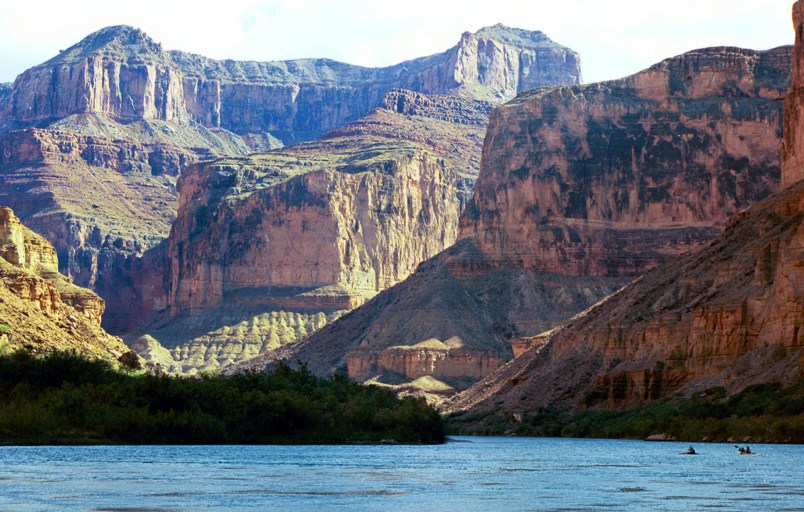PHOENIX (AP) — President Barack Obama has decided against creating a national monument covering areas of public land around Grand Canyon National Park, an Arizona congressman said Friday.
Democratic Rep. Raul Grijalva said White House Council on Environmental Quality officials told him of the decision during a meeting earlier this week.
The White House, given an opportunity to dispute Grijalva’s statement that he’d been informed Obama wouldn’t approve the monument, declined to comment Friday.
Grijalva supported creation of the proposed monument and said he’s disappointed by Obama’s decision but will continue efforts to protect the environment in the 2,650-square-mile area.
The monument proposal had support from American Indian tribes and environmental groups. It was opposed by business interests, Republican Gov. Doug Ducey and Arizona’s two GOP senators.
“I won’t rest until the inauguration, but that is big, good news if that is the case,” Sen. Jeff Flake told The Associated Press Friday. “They had not done the proper consultation with the local stakeholders here.
“It was opposed by most Arizonans, it violated the agreement that was made back in the 1980s that Sen. (John) McCain was very much a part of and Mo Udall, and Barry Goldwater and others to set aside wilderness areas but not shut off all economic activities,” Flake said. “So this is big and a good thing for the state of Arizona if it’s not happening.
The area proposed for the Grand Canyon monument consists of public land with towering cliffs and canyons, grasslands, forest and desert that is popular with hunters and hikers.
The area also included 1 million acres rich in uranium ore where new mining claims are banned through 2032. A monument proposal would have made that ban permanent.
Some advocates of the monument had said they remained hopeful after Obama, who leaves office on Jan. 20, created new monuments in Utah and Nevada in December under authority of the 1906 Antiquities Act.
Grijalva said designating the Grand Canyon monument could have helped fend off possible congressional moves against the Antiquities Act’s presidential power to designate monuments.
“If we’re going to have a fight about the Antiquities Act …then let’s have it over the Grand Canyon because I think that would bring huge national attention to that fight,” he said during a telephone interview.
Grijalva said he also wanted the designation to make permanent a moratorium already imposed on uranium mining near the canyon.
Flake and Sen. John McCain said after the Utah and Nevada monument designations that Obama “seems to have heard the message that Arizonans are not on board with plans for Washington to lock-up another 1.7 million acres in our state.”
The Arizona senators said in an October letter to Obama that the proposed Grand Canyon monument would have locked away an area larger than Delaware “from hunting, livestock, wildfire prevention, mining, and certain forms of outdoor recreation and tourism.”
The senators also said a monument designation won’t help combat a lingering drought and could prevent thinning of forests and stop hunters from keeping wildlife populations in check.
Ducey threatened to sue or work to get Congress to rescind a monument designation. He said Arizona already has enough national monuments.
Grijalva had introduced legislation seen as a blueprint for a monument, specifically allowing hunting, fishing, grazing and recreation to continue. It also would allow timber harvesting as part of a forest thinning or other restoration project.
Monuments, however, have added federal reviews for those activities.
___
Associated Press writers Bob Christie in Phoenix and Josh Lederman and Washington contributed to this report.
Copyright 2017 The Associated Press. All rights reserved. This material may not be published, broadcast, rewritten or redistributed.



